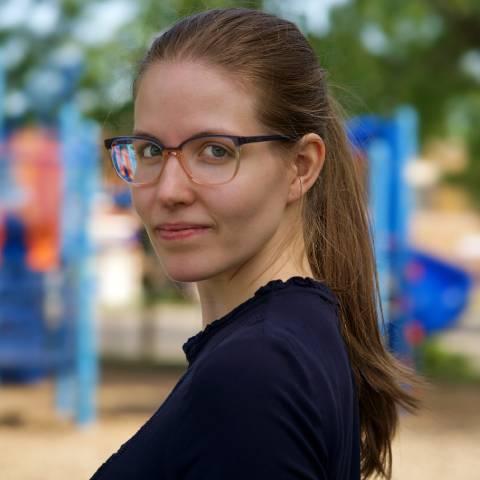From close to 500 applicants, the Pierre Elliott Trudeau Foundation selected 30 finalists for its 2022–2025 scholarship and leadership program. Now the Foundation has announced its 13 scholars—including McGill doctoral political science student Marjolaine Lamontagne.
“I am beyond honored to have been selected as a 2022 Scholar and I am excited to begin this new chapter of my academic journey with the members of my cohort,” says Lamontagne, who adds that is she particularly appreciative of the group interviews that were part of the selection process.

“The Trudeau Foundation is a staple of academic excellence and engaged leadership in Canada, and the group interviews allowed me to exchange with brilliant and meritorious candidates from all over the country.”
Lamontagne grew up in the francophone community of Edmonton, Alberta, and completed her high school and Cégep studies in Quebec. She holds a bachelor’s degree in International Relations and International Law, and a master’s degree in political science, from Université du Québec à Montréal. During her studies at UQAM, she was active as a student representative, member and coordinator of Amnesty International UQAM group, earned several awards in academic competitions, including the National Model United Nations and Charles-Rousseau moot court in public international law.
Lamontagne is currently completing her PhD courses and exams at McGill University, where she will write her thesis on the participation of local and regional governments to global governance within the climate, health and cultural diversity regimes under the supervision of Professor Vincent Pouliot.
“Despite all the practical difficulties associated with the restrictions of the past two years, Marjolaine has highly distinguished herself by the excellence of her work, ” says Prof. Pouliot, “whether in my doctoral seminar, as a research assistant, or in our informal discussions about her own work. The prestigious Trudeau Foundation Fellowship is well deserved and will allow her to realize her enormous potential in the years to come. I am very much looking forward to resuming in-person exchanges and following her progress closely.”
As a 2022 Pierre Elliott Trudeau Foundation Scholar, Lamontagne hopes to expand her intellectual horizons, share her research with the public, and meaningfully connect with students and researchers from across Canada.
“My thesis focuses on the evolution of the practices and institutions of global governance and territorial sovereignty in the 21st century,” she explains. “Therefore, it will be based on interviews with representatives of international organizations, states, and substate governments in Western Europe and North America. My fieldwork will require me to travel to various sites of global governance, such as the climate summits and the UNESCO headquarters in Paris, and to forge professional ties with scholars and practitioners in Canada and other federal states.
“The Trudeau Foundation’s support will allow me to pursue these objectives while also providing me with the resources and opportunities to increase the social and political impact of my research.”
According to the Foundation, Lamontagne and the other community-spirited, interdisciplinary scholars were chosen for their proven ability “to bring clear, structured and nuanced critical thinking skills to bear on contemporary issues.” The 13 scholars represent a wide range of disciplines—engineering, law, criminology, epidemiology, literature, social science, psychology, political science and philosophy—and are studying at eight Canadian universities and one each in America and South Korea. The scholars were chosen “not just for their academic excellence but also for their creativity, leadership potential, agility, resilience, commitment to a diversity of perspectives and, finally, their ability to engage in nuanced critical thinking about complex issues.”
“Our selection process identifies the critical thinkers who are willing to see both the forest and the trees, who recognize their own blind spots and grasp the complexity of today’s social issues, and who share a real desire to build a harmonious society and democratize learning,” notes Pascale Fournier, President and CEO of the Foundation. “Taking part in a transformative leadership program requires genuine curiosity about other people and communities and, most importantly, an openness to a wide variety of opinions, experiences and perspectives. So we look at both the candidates’ ability and desire to build bridges between themselves, others and the systems around them.”
The Scholars will embark on a three-year leadership program based on the Foundation’s leadership curriculum, Building Brave Spaces: The Path to Engaged Leadership. The curriculum will guide the Scholars step by step toward disseminating their research to the general public and the government, community and private sectors, thanks to the generosity of the Fellows and Mentors paired with a new Scholar every year.
The program created for the new 2022 cohort will focus on the theme of Global Economies, enabling the cohort’s Scholars to “expand their horizons beyond their own fields of study. It will give them opportunities to immerse themselves in a subject of critical importance at a time when our economic systems are coming under great stress and the world experiences disquieting, even appalling, geopolitical strife.”
In addition to leadership training, the Foundation will provide the 2022 Scholars with financial support over the next three years as well as academic resources, mentoring opportunities, training on the Global Economies scientific cycle and personalized leadership training, “designed to help Scholars reach new heights and have a positive impact in terms of public policy and scientific breakthroughs and within the private and community spheres.”
